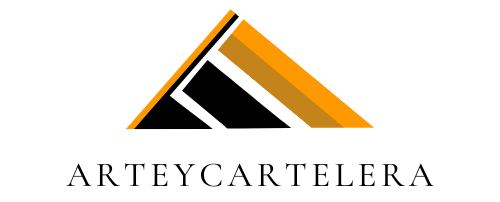How to Help a Senior Dog Adjust to Vision Loss?

As a pet owner, nothing can be more distressing than observing your loyal friend experience changes in their health, especially vision loss. You will always want your pet to keep the sparkle in their eyes, so seeing them struggle to find their way around can be heartbreaking. Vision loss, unfortunately, is a common issue in senior dogs. The good news, however, is that dogs adapt remarkably well to blindness, and with your help, they can continue to live a full and happy life. This comprehensive guide will walk you through the steps on how to assist a senior dog adapt to vision loss.
Recognizing the Signs of Vision Loss in Dogs
Recognizing changes in your dog’s vision is the first step in helping them adapt to vision loss. It can be tricky, as dogs often compensate for their loss of sight with their other senses. However, there are signs that you can look out for to detect vision complications early.
Cela peut vous intéresser : How to Prepare a Balanced Raw Food Diet for Cats Safely?
Firstly, you may notice subtle changes in your dog’s behavior, such as increased clumsiness or bumping into objects. They may become more cautious or anxious, especially in new environments. At night, your dog might hesitate to move around or show reluctance to go outside.
Your dog’s eyes may also exhibit physical changes. Indications of potential vision loss include cloudiness or redness in the eyes, excessive tearing or discharge. They might squint more often or exhibit sensitivity to light. If you notice any of these signs, it’s crucial to get your pet examined by a vet as soon as possible.
A découvrir également : What’s the Best Approach to Treating Hot Spots on Dogs at Home?
Navigating the Medical Aspects
Blindness in dogs can be gradual or sudden, caused by various health conditions such as cataracts, glaucoma, or retinal diseases. It’s crucial that, after noticing changes in your dog’s vision, you seek professional help to determine the cause.
The American Kennel Club (AKC) recommends regular check-ups for senior dogs to catch and treat conditions early. Your vet will perform an eye exam, and if necessary, additional tests to identify the underlying cause.
There are treatments available for some of these conditions, and in some cases, surgery or medication might help slow down or prevent further vision loss. Regardless of the treatment plan, remember, the goal is always to ensure your dog’s comfort and quality of life.
Training Your Dog to Adapt to Vision Loss
The next step is training. Dogs are remarkably adaptable and can live comfortably even with total vision loss. The key to helping your dog adjust is consistency and patience.
Begin by organising your home in a way that your dog can navigate safely. Try not to move furniture around too much, and keep their bed, food, and water bowls in the same place. Use soft padding around sharp corners to prevent injury.
Additionally, teach your dog new commands or cues that will help them navigate their surroundings better. For example, "careful" can be used to warn them of a nearby obstacle. Always use a calm and reassuring tone when guiding them.
Creating a Supportive Environment for Your Blind Dog
Apart from training, creating a supportive and loving environment is essential for a dog adapting to vision loss. Make sure they feel safe and comfortable at home and avoid leaving them alone for extended periods.
Ensure their remaining senses are stimulated. Dogs have exceptional hearing and can still enjoy their regular walks. Just ensure to keep them on a leash to prevent them from getting lost or startled.
Moreover, you can use different scented oils or pet-friendly sprays to mark different rooms or areas at home. This can help your dog find their way around.
Helping Your Dog Enjoy Their Golden Years
While dealing with vision loss can be a daunting time, remember that your dog can still enjoy their golden years. Continue to play with them, provide plenty of love and affection, and celebrate the little victories as they adapt to their new way of life.
Senior dogs with vision loss can still lead happy and fulfilling lives, with a little extra care and support. As a pet owner, your love, patience, and understanding during this time can make a world of difference to your furry friend.
Introducing Blind Dog Sports and Activities
When a dog experiences vision loss, it doesn’t mean they no longer get to enjoy being active. There are plenty of blind dog sports and activities designed specifically for visually impaired dogs or those who are losing vision. The key is to find activities that will help stimulate your dog’s other senses and keep them physically active and mentally stimulated.
Scent games are among the simplest and most effective activities to stimulate your dog’s sense of smell. You can hide food or toys around the house and encourage your dog to find them. This not only keeps your dog active but also provides mental stimulation and builds their confidence in navigating their environment.
Sound-based games are another excellent choice for blind dogs. The use of toys which make noise when moved or squeak when bitten can provide your dog with hours of fun. Interactive sound toys also help in improving the dog’s hearing ability.
Finally, you can also consider tactile games, which involve toys or puzzles that your dog can manipulate with their mouths or paws. These kinds of games help the dog to use its sense of touch and can be a great way to keep them entertained and engaged.
Just remember that safety is paramount. Always supervise these activities to prevent accidents or injuries, and be patient as your dog learns to navigate these games with their changing abilities.
Supporting a Senior Dog with Vision Loss: A Comprehensive Approach
When a senior dog experiences vision loss, it’s not just their sight that’s affected. Their entire world changes, and they need to learn how to navigate their environment differently. As their pet owner, your role is crucial in supporting them through this transition.
Firstly, providing a safe and stable environment is essential. As previously mentioned, avoid moving furniture around and use scented markers to help your dog find their way. You can also invest in dog-specific products like tactile mats and indoor fences to create a secure space.
Next, maintaining their physical health is vital. Regular vet check-ups can catch any potential health issues early. Adjust their diet as needed, ensuring they receive all the necessary nutrients for a senior dog.
Finally, don’t underestimate the power of emotional support. Every dog will react differently to vision loss. Some may become anxious or withdrawn, while others might be more clingy. Be there for them, providing extra cuddles and reassurances. Encourage them to play and keep them involved in the family activities.
Conclusion: Your Role in Ensuring a Quality Life for Your Blind Dog
Vision loss in dogs can be a challenging time, not just for the dog but also for you, the owner. However, remember that your four-legged friend is quite capable of adapting to this change, and they can continue to lead a full and joyful life.
The key is providing a stable environment, introducing activities that stimulate their other senses, and giving them all the love and support they need. It’s your patience, understanding, and care that will make the most significant difference in their lives.
While your dog’s health condition might change, the bond you share doesn’t have to. So, continue to cherish the time you have with your senior dog, celebrate each day, and help them make the most of their golden years. After all, love is the best medicine, and it’s all your dog truly needs.
In conclusion, as a pet owner, your actions can significantly enhance the quality of life for your blind dog, regardless of their age or health condition. With your help, they can continue to enjoy their golden years, even with vision loss. By following the tips provided in this guide, you can ensure that your furry friend continues to live a happy and fulfilling life.
